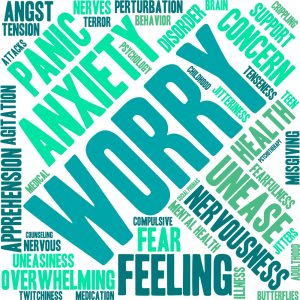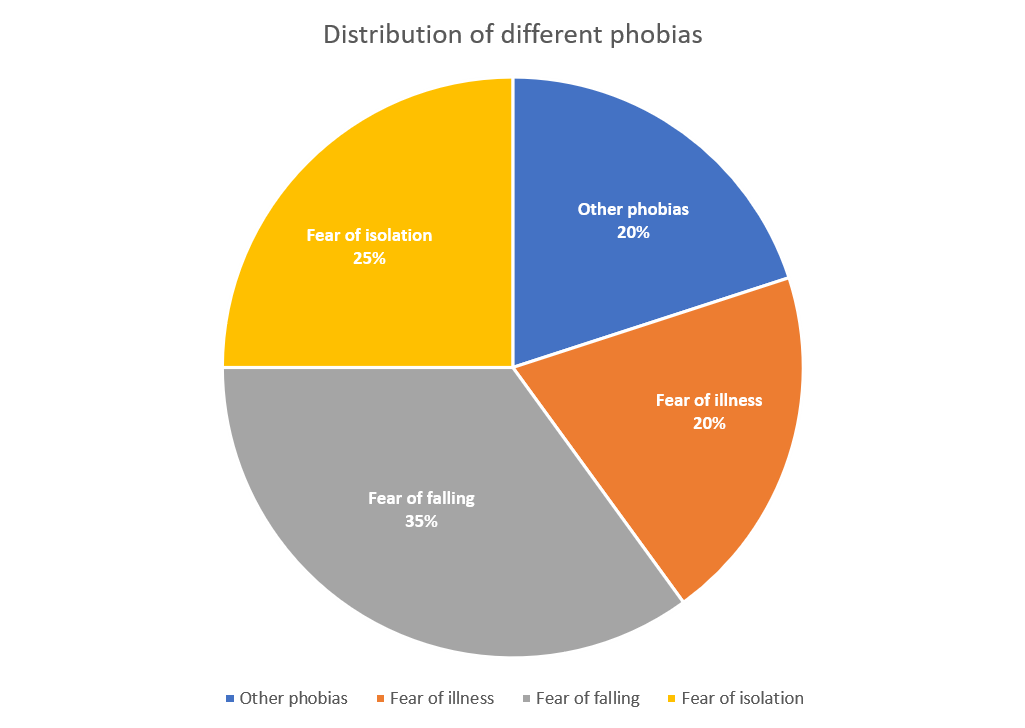Hypnotherapy offers a unique and compelling approach to smoking cessation, tapping into the power of the subconscious mind to overcome the deeply rooted habits and psychological triggers associated with smoking. This therapeutic method not only complements traditional cessation techniques but also provides a transformative journey towards better health and freedom from nicotine addiction. By exploring the various aspects of hypnotherapy, individuals seeking to quit smoking can discover how this method can be tailored to their personal journey, addressing both the physical and emotional facets of their addiction.
Many individuals come to trained and certified clinical hypnotherapists. AIHCP and the American College of Hypnotherapy offers professionals a training and certification to help others utilize hypnosis in breaking the habit of smoking. Please review AIHCP’s Clinical Hypnotherapy Certification.
Key Takeaways
- Hypnotherapy accesses the subconscious to reframe smoking habits and reinforce motivation, complementing traditional cessation methods.
- Hypnosis targets psychological triggers and stressors, offering a holistic approach to managing cravings and anxiety without cigarettes.
- The process of hypnotherapy involves trance-like states and positive affirmations, utilizing regression and progression techniques to break free from smoking.
- Clinical studies and randomized trials provide insight into the efficacy of hypnotherapy in smoking cessation, though scientific debate persists.
- A personalized hypnotherapy program is essential, with a qualified hypnotherapist tailoring sessions to individual needs for optimal results.
Understanding Hypnotherapy in Smoking Cessation

The Role of the Subconscious in Smoking Habits
Smoking is not merely a physical addiction to nicotine; it is also deeply rooted in the subconscious mind, where habits and emotional responses are stored. Hypnotherapy aims to access and modify these subconscious influences, providing a pathway to alter smoking behaviors that are often automatic and impulsive. The deceptive comfort of smoking is an illusion maintained by the subconscious, which hypnotherapy seeks to unravel for lasting change.
Hypnosis operates on the principle of accessing the subconscious mind to effect positive behavioral change. This is achieved by guiding individuals into a deeply relaxed state, heightening their suggestibility, and introducing new thought patterns and behaviors.
By addressing the subconscious drivers of smoking, hypnotherapy can reprogram beliefs and create a new self-image as a non-smoker. Techniques such as posthypnotic suggestions, metaphors, and ideomotor signals are employed to establish new rituals and coping mechanisms, moving beyond the illusion of comfort that smoking provides.
Mechanisms of Hypnotherapy for Behavior Change
Hypnotherapy operates on the principle of accessing the subconscious mind to effect positive behavioral change. During a hypnosis session focused on smoking cessation, individuals are guided into a deeply relaxed state where their subconscious mind becomes highly receptive to suggestion. Hypnotic suggestions are then utilized to reprogram ingrained patterns of thought and behavior associated with smoking, such as cravings, triggers, and negative associations. Through repetition and reinforcement, these mechanisms empower individuals to embrace positive behaviors essential for long-term success.
Various techniques are employed in hypnotherapy to facilitate this change:
- Ericksonian hypnotherapy
- Classical hypnosis
- Neuro-Linguistic Programming (NLP)
- Regression Hypnotherapy
- Ideomotor Hypnotherapy
Each technique offers a unique approach to redefining one’s identity as a non-smoker and addressing the deeper, often unconscious parts of the mind. Conversational Hypnosis, for instance, uses careful language to help clients connect with these deep parts of themselves, potentially streamlining the process and reducing performance anxiety.
Hypnotherapy is a great way to get to the core of a smoking issue. It engages the deeper/unconscious parts of the mind, allowing clients to feel results, not just understand them intellectually. It’s also a beneficial state for learning and a useful tool for relaxation.
Complementing Traditional Cessation Methods with Hypnosis
While traditional smoking cessation methods have their merits, the integration of hypnotherapy offers a unique advantage by addressing the psychological and subconscious aspects of addiction. Hypnosis works synergistically with conventional approaches, enhancing their effectiveness and providing a holistic path to quitting smoking.
Hypnotherapy’s role in smoking cessation is supported by a growing body of research. For instance, a study in the Journal of Nursing Scholarship indicates that hypnotherapy can increase the likelihood of abstinence from smoking. This is further corroborated by findings in Nicotine & Tobacco Research, which suggest that hypnosis is consistently more effective than behavioral counseling alone.
Hypnosis is not a magic cure, but when combined with other methods, it can significantly improve the chances of long-term cessation.
The following table summarizes the outcomes of a study comparing the effectiveness of hypnotherapy combined with Neuro-Linguistic Programming (NLP) against traditional methods:
| Method | Participants | Success Rate (6 months) |
|---|---|---|
| Hypnosis & NLP | 43 | 90% |
| Traditional Counseling | Not specified | Lower |
It is important to note that while hypnotherapy can be a powerful tool, it is not a standalone solution. A comprehensive approach that includes hypnosis may offer the best chance for individuals to overcome their smoking habits and maintain long-term abstinence.
Addressing Psychological Triggers Through Hypnosis

Identifying and Neutralizing Smoking Cues
The journey to quit smoking is often undermined by deeply ingrained cues and triggers that prompt the urge to smoke. Identifying these cues is the first step towards neutralizing their power over the individual’s behavior. These cues can be emotional, such as stress or anxiety, or situational, like social settings or after meals. By recognizing these patterns, hypnotherapy can target and reframe the subconscious associations that sustain the smoking habit.
Through hypnotherapy, individuals learn to replace negative associations with positive affirmations and healthier coping mechanisms. This transformation is not just about cessation but about fostering a new, healthier identity, as echoed by Northeast Hypnosis, which aims to “discover inner freedom and shift to a healthy identity.” The process involves several key elements:
- Element One: Addressing Chemical Dependency through gradual tapering in conjunction with hypnosis.
- Element Two: Uncovering Psychological Dependency by identifying emotional triggers.
- Element Three: Breaking the Physiological Dependency cycle of stress-smoke-relief.
- Element Four: Reinventing the smoker’s Identity Around Cigarettes to embrace an Ex-Smoker For Life persona.
The ultimate goal is not merely to stop smoking but to transform the individual’s relationship with smoking, thereby eliminating the need for cigarettes altogether. This holistic approach ensures that the change is sustainable and deeply rooted in the individual’s psyche.
Managing Stress and Anxiety Without Cigarettes
The transition away from smoking often reveals the extent to which individuals have relied on cigarettes as a crutch for managing stress and anxiety. Hypnotherapy offers a pathway to break this dependency, equipping individuals with healthier coping mechanisms. Through techniques such as relaxation exercises, visualization, and positive affirmations, hypnotherapy can instill a sense of inner calm and resilience.
By fostering a tranquil mental state, hypnotherapy aids in reducing the likelihood of relapse, as individuals learn to navigate stress without the crutch of nicotine.
Incorporating practices like meditation and mindfulness into daily routines complements the hypnotherapeutic approach. These practices are instrumental in establishing a new equilibrium, where stress and anxiety are managed without the need for cigarettes:
- Meditation promotes focused attention and awareness, reducing stress levels.
- Mindfulness encourages living in the present moment, which can alleviate anxiety.
- Regular practice of these techniques leads to long-term improvements in stress management.
Ultimately, the goal is to sever the association between cigarettes and stress relief, creating new, healthy habits that support a smoke-free life.
Reframing the Smoking Experience
Hypnotherapy offers a unique approach to smoking cessation by addressing the psychological and emotional components of the habit. It helps reframe your thoughts and associations with smoking, allowing you to break free from nicotine dependence and develop healthier habits. This cognitive restructuring is crucial as smoking is not merely a physical addiction but also a behavior deeply embedded in the smoker’s identity and daily rituals.
By accessing the subconscious mind, hypnotherapy can alter the perceived rewards and routines associated with smoking, replacing them with positive alternatives.
The process involves several key strategies:
- Utilizing posthypnotic and indirect suggestions to shift perceptions.
- Employing metaphors and time regression or progression to envision a smoke-free future.
- Establishing new rituals, such as self-hypnosis, to reinforce the non-smoker identity.
- Developing alternative coping mechanisms for stress and anxiety, breaking the stress-smoke-relief cycle.
Through these methods, individuals are empowered to redefine their relationship with cigarettes, stepping into a new identity as an Ex-Smoker For Life.
The Process of Hypnotherapy for Quitting Smoking

Inducing a Trance-like State for Suggestibility
The initial phase of hypnotherapy for smoking cessation involves guiding individuals into a trance-like state. This state is characterized by deep relaxation and heightened suggestibility, where the conscious mind is less active, allowing for direct communication with the subconscious. During this phase, clients are more open to positive suggestions that can alter their smoking habits.
In this state of focused concentration, the individual’s receptivity to behavioral change is significantly increased. Suggestions given during hypnosis can be tailored to reduce cravings and enhance coping mechanisms. Imagery is often employed to help visualize a smoke-free lifestyle, reinforcing the desired behavior.
The effects of a trance state on brain activity have been demonstrated in clinical studies, showing that hypnotherapy can be a potent tool in modifying deeply ingrained habits.
It is essential to understand that hypnotherapy is not about mind control but about empowering individuals to gain control over their smoking behavior. The role of the hypnotherapist is to facilitate this process, ensuring that the suggestions align with the client’s goals for quitting smoking.
Implementing Positive Suggestions and Affirmations
The strategic use of positive suggestions and affirmations is pivotal in reinforcing a smoker’s commitment to quitting. By embedding empowering messages into the subconscious mind, hypnotherapy can significantly alter a person’s smoking-related behaviors and attitudes. These affirmations are crafted to resonate deeply with the individual’s personal goals and the positive outcomes they wish to achieve.
- Affirmations may include statements like “I am free from the hold of nicotine” or “Each day, my lungs grow stronger and healthier.”
- They are repeated during the trance state for maximum absorption.
- The language used is always positive, present tense, and first person to enhance identification and internalization.
The consistent reinforcement of these positive affirmations can lead to profound shifts in self-perception and the ability to resist the urge to smoke.
It is essential to note that the effectiveness of these suggestions is often dependent on the individual’s level of suggestibility and their readiness to embrace change. A hypnotherapist will tailor these affirmations to align with the client’s specific needs, ensuring they are both meaningful and motivational.
Utilizing Regression and Progression Techniques
Regression and progression techniques in hypnotherapy serve as powerful tools for addressing the deep-seated roots of smoking addiction. Regression hypnotherapy allows individuals to reflect on past experiences that may contribute to their current smoking habits. By revisiting these moments under hypnosis, clients can gain insights and resolve past traumas that influence their behavior.
Progression techniques, on the other hand, guide clients to envision a future free from the constraints of smoking. This forward-looking approach helps to establish a positive outlook and reinforces the commitment to a smoke-free life. Both techniques are integral to the transformative journey of quitting smoking, as they address the psychological dimensions of addiction beyond the physical dependence.
The integration of regression and progression methods in hypnotherapy can lead to a more comprehensive and personalized smoking cessation strategy.
The following list outlines the potential benefits of combining these techniques:
- Healing from past negative associations with smoking
- Strengthening the resolve to quit through positive future visualization
- Reducing the likelihood of relapse by resolving underlying issues
- Enhancing the overall efficacy of the hypnotherapy program
Evaluating the Efficacy of Hypnotherapy in Smoking Cessation

Reviewing Randomized Trials and Clinical Studies
The scientific literature offers a wealth of randomized trials and clinical studies that scrutinize the effectiveness of hypnotherapy in smoking cessation. A pivotal aspect of this research is the direct comparison of hypnotherapy with other treatment modalities, such as cognitive-behavioral therapy (CBT). For instance, a study highlighted in the journal Front. Psychol. contrasts the outcomes of a hypnotherapeutic group program against those of an established CBT program for smoking cessation.
The meticulous design of these trials, often following the CONSORT guidelines, ensures a high standard of evidence. The trials typically include multiple phases: trial design, enrollment, randomization, and follow-up, which are crucial for validating the results.
Clinical trials registered on platforms like clinicaltrials.gov provide additional data points. A notable trial by Carmody et al. (2017) compared hypnosis with behavioral counseling, revealing no significant differences in quit rates after 12 months. Such findings are instrumental in understanding the nuanced efficacy of hypnotherapy as a smoking cessation aid.
Comparing Hypnotherapy with Other Cessation Interventions
When evaluating the effectiveness of hypnotherapy in smoking cessation, it is crucial to compare it with other established cessation methods. Randomized trials have often placed hypnotherapy alongside interventions such as acupuncture, relaxation techniques, and cognitive-behavioral therapy (CBT). These studies aim to provide a clear picture of how hypnotherapy stacks up against alternative treatments.
The continuous abstinence rates suggest that the efficacy of hypnotherapy is comparable to that of other established programs.
A meta-analytic comparison of smoking cessation methods revealed that a combination of Neuro-Linguistic Programming (NLP) and hypnotherapy resulted in a 90% success rate in participants remaining smoke-free after six months. This suggests a potential synergy when hypnotherapy is integrated with other behavioral strategies.
To ensure a fair comparison, it is essential that the hypnotherapy intervention is clearly defined, active intervention comparisons are made, and therapist contact time is matched. This approach helps in addressing the scientific debate surrounding the efficacy of hypnotherapy for smoking cessation.
Understanding the Scientific Debate Surrounding Hypnotherapy
The scientific community continues to scrutinize the efficacy of hypnotherapy in smoking cessation. Despite its inclusion as an acceptable treatment for tobacco dependence by entities such as the German Scientific Advisory Board for Psychotherapy, there remains a lack of consensus. This is partly due to the varying quality of studies, with some earlier research utilizing outdated definitions and methods of hypnotherapy.
Recent meta-analyses, including one with 1,926 participants across 14 studies, struggle to draw definitive conclusions due to the low quality of many studies. Techniques have evolved significantly since the 1970s and 1980s, shifting towards a resource-based approach rather than the more direct forms of hypnosis used in the past.
The debate is not solely about the effectiveness of hypnotherapy but also about the methodologies used in research and the evolution of hypnotherapy techniques over time.
Several randomized trials have compared hypnotherapy to other treatments, such as cognitive-behavioral therapy, acupuncture, and relaxation techniques. The results vary, leading to ongoing discussions within the scientific community about the place of hypnotherapy in smoking cessation programs.
Developing a Personalized Hypnotherapy Program

Tailoring Sessions to Individual Needs and Goals
The success of hypnotherapy in smoking cessation is significantly enhanced when sessions are customized to the individual’s unique circumstances. A skilled hypnotherapist will conduct a thorough assessment to understand the client’s smoking habits, triggers, and personal history. This information is crucial in designing a hypnotherapy program that resonates with the client’s specific challenges and aspirations.
- Initial consultation to assess smoking behavior and triggers
- Identification of personal goals and motivation for quitting
- Development of a tailored hypnotherapy strategy
By focusing on the individual’s distinct needs, hypnotherapy becomes a more powerful tool in overcoming the smoking habit.
It is essential to recognize that no two smokers are alike, and as such, the approach to hypnotherapy must be flexible and adaptive. Techniques such as Ericksonian hypnotherapy, Neuro-Linguistic Programming (NLP), and regression therapy may be employed, depending on what aligns best with the client’s psychological makeup and preferences.
Incorporating Ideomotor Actions and Self-Empowerment
In the realm of hypnotherapy for smoking cessation, ideomotor actions serve as a bridge between the conscious and subconscious mind, translating thought into motion without conscious effort. These subtle physical responses can be harnessed to reinforce the individual’s commitment to quit smoking, often through gestures or signals that are associated with a smoke-free identity.
Ideomotor actions, when paired with self-empowerment strategies, create a powerful synergy that can significantly enhance the effectiveness of hypnotherapy. By cultivating a sense of control and self-efficacy, clients are more likely to maintain their resolve and resist the temptation to smoke.
The integration of ideomotor actions into hypnotherapy sessions is not just about the physical manifestation of intent; it’s about embedding the conviction to quit smoking deep within the subconscious.
The following list outlines key aspects of incorporating ideomotor actions and self-empowerment into a hypnotherapy program:
- Establishing a set of personalized ideomotor signals that resonate with the client’s desire to stop smoking.
- Developing a repertoire of empowering affirmations that clients can use to bolster their confidence and commitment.
- Creating a feedback loop where ideomotor responses provide tangible evidence of the subconscious working towards cessation goals.
- Encouraging clients to practice these actions and affirmations daily to solidify their new non-smoking identity.
Establishing New Rituals and Coping Mechanisms
In the journey of smoking cessation, the establishment of new rituals and coping mechanisms plays a pivotal role. The transition from smoker to non-smoker often requires the creation of new, healthier habits to replace the void left by cigarettes. Hypnotherapy facilitates this process by embedding posthypnotic suggestions that link the cognitive and emotional experiences of trance with daily life, thereby reinforcing the individual’s commitment to a smoke-free existence.
The effectiveness of hypnotherapy lies in its ability to reframe the smoking experience and provide individuals with the tools to manage cravings and triggers through alternative behaviors. This reframing is crucial in developing a new self-identity as a non-smoker.
To illustrate the transformation, consider the following steps often recommended in hypnotherapy sessions:
- Identification of personal triggers and the development of healthier coping strategies.
- Utilization of self-hypnosis to reinforce the individual’s ability to imagine life without cigarettes.
- Repetition and reinforcement of positive suggestions to establish new behavioral patterns.
While the efficacy of hypnotherapy in smoking cessation is subject to ongoing scientific debate, the personalized nature of the approach allows for the tailoring of techniques to individual needs, such as the use of metaphors, time regression or progression, and the development of alternatives for potential relapses.
Overcoming the ‘Separation Anxiety’ of Quitting

Addressing the Stressors and Triggers of Smoking
The journey to quit smoking is often fraught with various stressors and triggers that can derail even the most determined individuals. Understanding and addressing these factors is crucial in the smoking cessation process. Hypnotherapy offers a unique approach to identify and neutralize the elements that lead to the stress-smoke-relief cycle.
By focusing on the subconscious, hypnotherapy can help to break the association between stress and the act of smoking, offering a safer and equally effective alternative to manage anxiety.
The following list outlines key strategies used in hypnotherapy to address smoking triggers:
- Relaxation exercises to reduce tension
- Visualization techniques to strengthen resolve
- Positive affirmations to reinforce a smoke-free identity
- Coping mechanisms for managing cravings and withdrawal symptoms
Each strategy is tailored to the individual’s experiences and needs, ensuring a personalized approach to overcoming the physiological dependency and the deeply ingrained identity as a smoker.
Utilizing Hypnotherapy to Ease the Transition
The transition away from smoking is often fraught with emotional and psychological challenges, akin to ‘separation anxiety.’ Hypnotherapy serves as a bridge, offering a smoother passage from dependency to freedom. By addressing the subconscious associations and rituals tied to smoking, individuals can find relief from the stressors and triggers that typically accompany cessation efforts.
Hypnotherapy can be particularly effective in unplugging the automatic nature of the smoking habit, allowing for a fresh perspective on stress and the role cigarettes have played.
The techniques employed in hypnotherapy, such as Ericksonian methods, NLP, and regression therapy, are tailored to help clients navigate this transition with greater ease. The process involves:
- Identifying the unconscious cues linked to smoking
- Rewiring the mind-body connection to respond differently to stress
- Reinforcing the desire for health and the benefits of being smoke-free
Clients often report significant reductions in cravings and an increased ability to manage stress without resorting to cigarettes. This transformation is not just about quitting a habit; it’s about reshaping one’s lifestyle and coping mechanisms for the better.
Releasing Unwanted Behaviors and Emotions
In the journey of smoking cessation, hypnotherapy serves as a pivotal tool for releasing unwanted behaviors and emotions that are often deeply ingrained in the smoker’s psyche. Techniques such as Eye Movement Desensitization Therapy (EMDR) and the Emotional Freedom Technique (EFT) have shown promise in helping individuals ‘unstick’ persistent thought and feeling combinations that contribute to the smoking habit.
Hypnotherapy can aid in breaking undesirable habits, such as smoking, by rewiring subconscious patterns.
Breathwork and visualization are additional strategies that complement the hypnotherapeutic approach. By resetting the fight or flight response through specific breathing patterns, clients can achieve a sense of calm, crucial for overcoming the urge to smoke. Visualization, akin to methods used by athletes, primes individuals for success, particularly beneficial after addressing the core issues of addiction.
The process of reprogramming behaviors for long-term success involves a series of steps that may include:
- Identifying the underlying emotional triggers of smoking
- Utilizing EMDR/EFT to address and neutralize these triggers
- Implementing breathwork techniques to manage stress and anxiety
- Engaging in visualization to reinforce a smoke-free self-image
Maximizing Success Rates with Combined Behavioral Strategies

Integrating Hypnotherapy with Behavioral Therapy
The integration of hypnotherapy with behavioral therapy represents a multifaceted approach to smoking cessation. Behavioral therapy focuses on modifying negative behaviors and coping strategies, while hypnotherapy aims to access and influence the subconscious mind. Together, they form a comprehensive treatment plan that addresses both the conscious and subconscious aspects of addiction.
- Ericksonian hypnotherapy
- Classical hypnosis
- Neuro-Linguistic Programming (NLP)
- Regression Hypnotherapy
- Ideomotor Hypnotherapy
These hypnotherapy techniques, when combined with cognitive-behavioral strategies, can enhance the individual’s ability to resist smoking triggers and maintain long-term abstinence. For instance, the use of ideomotor actions in hypnotherapy can help in setting a quitting date, which is a practical step in the behavioral change process.
The synergy between hypnotherapy and behavioral therapy can streamline the cessation process, reduce performance anxiety, and facilitate a deeper engagement with the treatment.
The structured program based on standardized smoking cessation manuals incorporates trance-induced focusing, development of a positive self-perception, and reframing of smoking behaviors. This structured approach is crucial in ensuring that the treatment is tailored to the individual’s needs, thereby optimizing the chances of success.
Reinforcing Motivation and Reducing Cravings
The journey to quit smoking is often fraught with intense cravings and a need for strong motivation. Hypnotherapy serves as a pivotal tool in diminishing these cravings and bolstering the individual’s resolve to abstain from smoking. By targeting the subconscious mind, hypnotherapy can alter the perceived intensity and frequency of cravings, making the cessation process more manageable.
Hypnotherapy employs a variety of techniques to reinforce abstinence and empower individuals with strategies to cope with smoking urges. These strategies include relaxation, relapse prevention, and the development of healthier habits.
A critical aspect of hypnotherapy is its ability to address the root causes of the motivation to smoke, such as stress, anxiety, and habitual triggers. Through a collaborative process, the hypnotherapist guides the patient towards self-sufficiency in achieving a hypnotic state, which can be used to manage cravings autonomously.
To illustrate the multifaceted approach of hypnotherapy in reinforcing motivation and reducing cravings, consider the following points:
- Strategies for coping with smoking urges and withdrawal symptoms
- Social support and the establishment of social contracts
- Strategies for preventing weight gain and encouragement of physical activity
- Relaxation techniques and relapse prevention strategies
By integrating these elements, hypnotherapy not only addresses the immediate challenge of cravings but also empowers individuals to redefine their identity as non-smokers, fostering positive behaviors for long-term success.
Empowering Individuals for Lasting Change
The journey to smoking cessation is not solely about overcoming a physical addiction; it is equally about fostering a mindset that supports sustained behavioral change. Hypnotherapy serves as a catalyst for this transformation, instilling a sense of self-efficacy and control that is crucial for long-term success.
- Reprogramming Behaviours: Hypnotherapy aids in altering deep-seated habits and creating new, healthier patterns of behavior.
- Motivational Interviewing: This technique complements hypnotherapy by reinforcing the individual’s motivation and commitment to quit smoking.
- Redefining Identity: Through hypnosis, individuals can begin to view themselves as non-smokers, which is a powerful shift in self-perception.
By addressing the psychological components of smoking addiction, hypnotherapy equips individuals with the tools to navigate the challenges of quitting. It is the internal transformation that underpins the external change, making the cessation journey more manageable and sustainable.
The efficacy of such interventions is supported by a variety of programs and strategies. As highlighted in the title ‘A Review of Smoking Cessation Interventions: Efficacy, Strategies …’, combining hospital- and community-based programs can lead to multi-strategic solutions that significantly aid in the reduction of smoking.
The Role of a Hypnotherapist in Smoking Cessation

Guiding Clients Over the Hump of Addiction
The journey to overcome smoking addiction is a multifaceted process that requires a deep understanding of the individual’s unique triggers and associations. A hypnotherapist plays a crucial role in this journey, employing a variety of techniques to guide clients through the challenging transition from dependence to freedom. Hypnotherapy using guided imagery and visualization can help prevent addiction relapse. These techniques enable clients to create peaceful mental images and relaxation, fostering a mindset conducive to overcoming addiction. AIHCP trains a variety of professionals in Clinical Hypnotherapy.
The way clients structure their compulsions to smoke varies significantly, necessitating a tailored approach to each individual’s needs. Hypnotherapists must be adept at adapting their methods to the unique structure of each client’s issue.
Understanding the physiological foundation for the addiction is essential, as is the ability to neutralize the triggers and associations that sustain the smoking habit. Hypnotherapists often prepare for success by learning to evaluate the type of smoker their client is and how ready they are to quit. This preparation may include essential stop smoking scripts and strategies to help clients quit in as few as 1 to 3 sessions.
Providing Support and Accountability
The journey to quit smoking is often fraught with challenges that can derail even the most determined individuals. A hypnotherapist provides crucial support and accountability, ensuring that clients do not navigate this path alone. By establishing a partnership, the hypnotherapist becomes a pillar of strength, offering encouragement and reinforcing the commitment to a smoke-free life.
- Regular check-ins to monitor progress
- Personalized feedback to address specific hurdles
- Encouragement to celebrate milestones
The Freedom From Smoking Group Hypnosis Program exemplifies a collective approach to cessation, fostering a sense of community and shared purpose among participants.
Accountability is not just about tracking the cessation process; it’s about creating a responsive environment that adapts to the client’s evolving needs. A hypnotherapist’s role extends beyond the session, providing strategies and support that help clients resist the urge to smoke, even in the face of stress or social pressure.
Customizing Hypnotherapy Techniques for Optimal Results
The efficacy of hypnotherapy in smoking cessation is significantly enhanced when techniques are tailored to the individual’s unique psychological makeup and smoking patterns. Customization is key to unlocking the full potential of hypnotherapy, ensuring that each session is aligned with the client’s specific needs and goals.
A variety of hypnotherapy approaches exist, each with its own strengths:
- Ericksonian hypnotherapy utilizes metaphors and storytelling to facilitate change.
- Classical hypnosis relies on direct suggestions for behavior modification.
- Neuro-Linguistic Programming (NLP) focuses on the language of the mind to influence behavior.
- Regression Hypnotherapy explores past events that may influence current habits.
- Ideomotor Hypnotherapy employs physical responses to access the subconscious.
The process of customization involves a thorough assessment of the client’s smoking history, triggers, and previous attempts at quitting. This information guides the hypnotherapist in selecting and combining techniques that resonate most effectively with the client, creating a more receptive state for positive change.
By integrating various hypnotherapy methods, practitioners can address the multifaceted nature of smoking addiction. The table below illustrates how different techniques can be matched with client characteristics for optimal results:
| Client Characteristic | Hypnotherapy Technique |
|---|---|
| High stress levels | Ericksonian, NLP |
| Strong physical habit | Ideomotor, Classical |
| Past trauma related to habit | Regression |
| Skepticism towards hypnosis | Conversational Hypnosis |
The strategic combination of these techniques can lead to a more profound and lasting impact on smoking cessation efforts, ultimately empowering clients to achieve a smoke-free life.
The Transformative Power of Hypnosis in Health and Well-being
Breaking Free from Nicotine Addiction
The journey to a smoke-free life is a transformative process that involves not only the cessation of physical smoking habits but also a profound shift in mental and emotional patterns. Hypnotherapy offers a unique avenue for individuals to break free from nicotine addiction by targeting the subconscious drivers of behavior. This therapeutic approach facilitates the establishment of new, healthier habits and beliefs, which are crucial for long-term success in quitting smoking.
Embarking on this path can be both challenging and rewarding, with hypnotherapy enhancing traditional methods to create a comprehensive strategy. By addressing the physiological dependency and reshaping one’s identity around cigarettes, individuals are empowered to adopt a new self-image as a non-smoker. The integration of hypnotic methods with other cessation techniques can lead to significant improvements in the ability to manage stress and eliminate the need for cigarettes as a coping mechanism.
The effectiveness of hypnotherapy in smoking cessation is supported by clinical research, indicating a high success rate for individuals who undergo this treatment. For instance, preliminary results from a study titled ‘Clinical Hypnosis For Smoking Cessation’ revealed that 81% of patients successfully quit smoking after the treatments, showcasing the potential of hypnotherapy to facilitate lasting behavioral change.
Improving Overall Health through Subconscious Change
The journey to improved health through hypnotherapy extends beyond the cessation of smoking; it involves a holistic transformation of one’s lifestyle and well-being. Hypnosis operates on the principle of accessing the subconscious mind to effect positive behavioral change. By reprogramming the subconscious, individuals can overcome not just the physical addiction to nicotine, but also the psychological patterns that perpetuate smoking.
Through the power of suggestion and the establishment of new, healthier habits, hypnotherapy fosters a comprehensive shift in behavior. This shift is not limited to smoking cessation but also encompasses stress management, coping mechanisms, and a redefined self-identity as a non-smoker. The table below illustrates the multifaceted benefits of hypnotherapy in the context of overall health improvement:
| Aspect of Health | Improvement Through Hypnotherapy |
|---|---|
| Physical Health | Reduced risk of smoking-related diseases |
| Mental Well-being | Enhanced stress and anxiety management |
| Behavioral Patterns | Adoption of healthier coping strategies |
| Self-Identity | Reinforcement of a non-smoker self-image |
Embracing these changes not only contributes to a smoke-free life but also to a more resilient and empowered existence. The transformative power of hypnosis thus extends to a broad spectrum of health and well-being aspects, making it a valuable tool in the pursuit of a healthier lifestyle.
Embarking on a Journey Towards a Smoke-Free Life
Embarking on the journey to quit smoking can be both daunting and rewarding. While many individuals recognize the health risks associated with smoking, breaking free from nicotine addiction often requires a multifaceted approach. One highly effective method gaining popularity is hypnosis, a therapeutic technique that targets the subconscious mind to facilitate behavioral change.
Quitting smoking is a journey fraught with challenges, and for many, the struggle extends beyond the physical addiction to nicotine. Anxiety, stress, and emotional triggers often accompany attempts to break free from the grip of smoking, making it a daunting endeavor. Hypnosis offers a promising solution for those seeking to quit smoking while managing anxiety effectively.
Hypnotherapy holds immense promise for those seeking a path to a smoke-free life. It complements traditional methods and provides a unique avenue for overcoming the psychological hurdles that often impede success.
A question to ask yourself: Do you desire the benefits of being a former-smoker even though you still reach out for a smoke? This may seem to be conflicting thoughts, but that’s normal. Once you realize that smoking is simply baggage from the past, hypnotherapy may help you walk away from a habit that you no longer want.
Finding and Working with a Qualified Hypnotherapist
Criteria for Selecting a Hypnotherapy Practitioner

Choosing the right hypnotherapist is a critical step in your journey to stop smoking. First and foremost, you want to make sure the hypnotherapist you choose is licensed and certified. This ensures that they have undergone the proper training and adhere to professional standards. When researching potential practitioners, consider the following steps:
- Research Online: Look for hypnotherapists in your area by exploring websites, directories, and reviews.
- Check Credentials: Confirm that the hypnotherapist has certifications from reputable hypnotherapy organizations.
- Schedule Consultations: Meet with hypnotherapists to discuss your goals and evaluate compatibility.
- Consider Referrals: Ask for recommendations from those who have successfully quit smoking through hypnotherapy.
It is essential to find a hypnotherapist who specializes in smoking cessation to tailor the sessions to your needs. A professional with a focused expertise will be more adept at addressing the unique challenges associated with quitting smoking.
Setting Clear Intentions for the Hypnotherapy Journey
Embarking on the hypnotherapy journey for smoking cessation begins with setting clear intentions. Before diving into the therapeutic process, it is crucial to reflect on personal motivations and desired outcomes. This preparatory step is not only about having a goal but also about understanding the deeper reasons behind the decision to quit smoking.
- Reflect on why quitting is important to you
- Envision a smoke-free future and what it means for your health and lifestyle
- Determine the personal values and benefits that align with quitting
Establishing these intentions provides a roadmap for the hypnotherapy sessions and ensures that the techniques used are tailored to your specific needs. It is a time to align your conscious desires with the subconscious changes you wish to make.
The hypnotherapy program incorporates various techniques such as trance-induced focusing, development of a positive self-perception, and reframing of smoking behaviors. By setting clear intentions, you can better navigate through these components, making the journey more effective and personally significant.
Ensuring a Tailored Approach to Smoking Cessation
The success of hypnotherapy in smoking cessation is significantly enhanced when the approach is customized to the individual’s unique needs and smoking habits. A tailored hypnotherapy program considers the smoker’s personal triggers, emotional connections to smoking, and their readiness to quit. This personalization is crucial because it aligns the therapeutic interventions with the smoker’s specific psychological landscape, which can vary greatly from one person to another.
- Identification of personal smoking triggers
- Assessment of the smoker’s relationship with tobacco
- Customization of hypnotic suggestions and imagery
- Continuous adaptation of the program based on progress
Ensuring a tailored approach to smoking cessation is not just about personalizing the hypnotherapy sessions; it’s about creating a comprehensive quit plan that evolves with the individual’s journey.
The evidence suggests that hypnotherapy can be as effective as cognitive-behavioral therapy (CBT) when tailored to the smoker’s profile. It is essential for hypnotherapists to stay informed about the latest research and integrate these findings into their practice to provide the most effective support for their clients.
Embarking on a journey to become a qualified hypnotherapist is a transformative experience that requires proper guidance and education. Our American College of Hypnotherapy offers a comprehensive Clinical Hypnotherapy Certification program dedicated to continued learning, growth, and achievement in healthcare practice. If you’re ready to take the next step in your professional development, please review AIHCP’s Clinical Hypnotherapy Program to explore our certification process, course offerings, and prerequisites. Don’t wait to enhance your skills and advance your career—take action today and join our community of healthcare professionals!
Conclusion
In conclusion, hypnotherapy emerges as a potent adjunctive treatment for smoking cessation, offering a unique approach that delves into the subconscious to address the psychological underpinnings of nicotine addiction. By combining trance-induced techniques with positive suggestions and behavioral strategies, hypnotherapy can significantly aid individuals in breaking free from the habitual patterns of smoking. Although scientific debate persists regarding its efficacy, the transformative potential of hypnotherapy cannot be overlooked. It empowers smokers with the tools to reframe their relationship with tobacco, manage cravings, and foster a new self-identity as a non-smoker. As with any therapeutic intervention, the success of hypnotherapy hinges on the expertise of the practitioner and the readiness of the individual to embrace change. For those seeking to extinguish the hold of nicotine, hypnotherapy represents a promising path to improved health and a smoke-free life.

Please also review AIHCP’s Clinical Hypnotherapy Program and see if it meets your academic and professional goals. The program is online and independent study and open to qualified professionals seeking a four year certification in Clinical Hypnotherapy. Those seeking help escaping the addiction of smoking can find numerous certified Clinical Hypnotherapists across the country.
Frequently Asked Questions
How can hypnosis help me stop smoking?
Hypnosis can help you stop smoking by accessing your subconscious mind to unplug the triggers and reframe your smoking habits. It aids in reducing cravings and changing negative habits, thus developing self-control over your behavior.
What does a hypnotherapy session for smoking cessation involve?
A hypnotherapy session for smoking cessation involves inducing a trance-like state to heighten suggestibility, where positive suggestions aimed at breaking the smoking habit are introduced. It may also include regression or progression techniques and establishing new coping mechanisms.
Can hypnotherapy be combined with other smoking cessation methods?
Yes, hypnotherapy can be a valuable adjunct therapy and can be combined with traditional methods and behavioral strategies to maximize success rates and empower individuals to achieve lasting freedom from smoking.
Is there scientific evidence supporting hypnotherapy for quitting smoking?
There is considerable scientific debate about the efficacy of hypnotherapy for smoking cessation. However, several randomized trials have compared hypnotherapy with other treatments and found it to be a successful technique for some individuals.
What are the psychological factors addressed by hypnotherapy in smoking cessation?
Hypnotherapy addresses psychological factors such as cravings, triggers, stress, and anxiety that contribute to smoking behavior, by harnessing the power of the subconscious mind.
How do I find a qualified hypnotherapist for smoking cessation?
Look for a certified hypnotherapist with experience in smoking cessation. Ensure they can tailor the sessions to your specific needs and have a professional approach to your hypnotherapy journey.
What can I expect after a hypnotherapy session for quitting smoking?
Post-hypnotherapy, you can expect to experience a shift in your mindset regarding smoking, with reduced cravings and a stronger motivation to quit. It’s essential to establish new rituals and coping mechanisms to maintain the change.
How does hypnotherapy reduce the ‘separation anxiety’ from quitting smoking?
Hypnotherapy helps reduce the ‘separation anxiety’ associated with quitting by addressing stressors and triggers, managing stress without cigarettes, and instilling a new sense of identity as a non-smoker.
Additional Resources
Pietrangelo. A. (2023). Can Hypnosis Get Me to Quit Smoking?. HealthLine. Access here
Miller, K. (2023). Hypnosis for Quitting Smoking. WebMed. Access here
Geng, C. (2023). Does hypnosis help to quit smoking?. MedicalNewsToday. Access here
Hypnotherapy for smoking cessation. National Library of Medicine. Access here

 Written by Daniel Martin
Written by Daniel Martin


